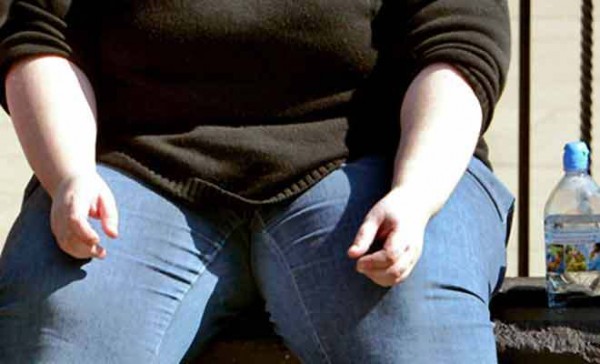Losing Weight Without Gastric Bypass Surgery
There’s more to gastric bypass than surgery and rapid massive weight loss. Patients who undergo weight loss surgery (WLS) sign-up for a lifetime of rigid behaviors to guarantee their long-term success.
Just imagine: If you knew what those behaviors were, could you lose the weight and keep it off without surgery?
Take a look at the four rules WLS patients live by:
Rule 1: Protein First
The first rule for living after Weight Loss Surgery (WLS) is Protein First – that means eating protein for three daily meals, and protein must be 50 percent of food intake. Animal products are the most nutrient rich source of protein and include fish, poultry and meat. Dairy protein, including eggs, is another excellent source of protein. Nuts and legumes are also good sources of protein, but sometimes difficult for the bariatric patient to consume.
Science is proving that a protein rich diet will prompt weight loss and increase energy. The body contains over fifty-thousand different active proteins all made out of the same building blocks: amino acids. Amino acids are made of carbon, hydrogen, oxygen and nitrogen as well as sulfur, phosphorus and iron.
Many diseases – including obesity – indicate an amino acid deficiency.
Weight loss surgery patients don’t have a choice, they must eat lean protein or they will get sick, anemic, and weary. Weight loss will cease if they eat processed carbohydrates instead of lean protein. Dumping or vomiting may also result if patients do not eat lean protein for the first half of every meal.
The distinction must be made between high fat proteins and lean proteins. A gastric bypass patient cannot tolerate high fat proteins such as bacon, fatty beef or sausage products or greasy fried chicken: these foods cause nausea and vomiting. In addition, these high fat protein rich items are contributors to obesity and should be avoided by anyone wishing to control their weight.
Rule 2: Drink lots of water
Dieters are often told – drink water. Drink a minimum of 64 ounces a day – eight glasses a day. Gastric-bypass patients don’t have a choice: they must drink lots water. Other beverages including coffee, tea, milk, soft drinks and alcohol are forbidden. Water is the essential fluid for living. Water is one of the most important nutrients the body needs to stay healthy, vibrant and energetic. A tell-tell sign of a gastric bypass patient is the ever-present water bottle.
The human body is a magnificent vessel full of water. The brain is more than 75 percent water and 80 percent of blood is water. In fact, water plays a critical role in every system of the human body. Water regulates body temperature, removes wastes, carries nutrients and oxygen to the cells, cushions the joints, prevents constipation, flushes toxins from the kidneys and liver and dissolves vitamins, minerals and other nutrients for the body’s use.
Nutritionists say a precise measure of the body’s need for water is to divide body weight (pounds) in half and drink that many ounces every day. That number could well exceed 200 ounces a day for morbidly obese people actively engaged in weight loss.
The body will panic if actual water intake is significantly less than required. Blood cannot flow, waste processes are disrupted and the electrolytes become imbalanced. Proper hydration prevents inflammation, promotes osmosis and moistens lung surfaces for gas diffusion. It helps the body regulate temperature, irrigate the cells and organs and promotes all functions of elimination. Certainly by drinking plenty of water many people could resolve inflammation and elimination problems that result from insufficient water intake. Adequate water facilitates weight loss.
Rule 3: No Snacking
Gastric bypass patients are instructed to avoid snacking. No exceptions.
Snacking is the worst possible thing a WLS patient can do. If patients snack they cease to lose weight and could possibly regain weight. In addition gastric bypass snackers risk severe swings in blood sugar levels and glucose overdose, they fail to move forward to the healthy life that surgery makes possible. They feel like failures when the WLS does not result in weight loss.
The nature of gastric bypass surgery gives patients an edge on beating the snacking habit. When a patient eats three protein-rich meals a day the body’s fuel requirements are met and satiation results. Hunger does not occur if water is sipped throughout the day.
If a patient is taking vitamins they will not be nutritionally wanting. Given that, patients who snack are doing so out of the very habit that contributed to obesity.
If a dieter must snack they must be mindful of their choices. Fruits, vegetables and lean proteins will contributed to wellness and weight loss. Processed carbohydrate convenience foods fail to meet nutritional needs or facilitate weight loss and should be avoided.
Successful WLS patients understand that snacking is bariatric purgatory. When they begin to snack weight loss will cease and weight gain will certainly result. Successful weight loss patients – those who maintain their weight loss years after surgery – do not snack. The same is true for all successful dieters regardless of the means by which they initially lost weight.
Rule 4: Exercise
The final rule, the one WLS despise the most, patients must exercise every day.
Nothing is more disappointing than hearing a gastric bypass patient brag that they didn’t have to exercise to lose weight. It’s true; patients will lose weight without lifting a finger. But patients who do not use the time of rapid weight loss to incorporate exercise into their lifestyle are doing themselves a grave disservice.
Obesity cripples the body. Bone tissues are compromised, joints are swollen, the vascular system is inadequate and the skeleton overburdened. As weight is lost, the burden on the bones, joints and vascular system is decreased. However, the body is a magnificent machine. Given proper nutrition and physical motion it will rebuild its broken framework. The systems can become strong and vital.
The most effective way to heal the body from the ravages of obesity is to exercise. Exercise means moving the body: walking, stretching, bending, inhaling and exhaling. Exercise is the most effective, most enjoyable, most beneficial gift one can bestow on themselves in the recovery from life threatening, crippling morbid obesity. People who successfully maintain their weight exercise daily.
Conclusion
Successful weight loss surgery patients will tell you these are the four rules they live by, that the gastric bypass is only a tool to facilitate mindful behavior for better health.
- They will confirm that weight control, even with surgery, takes a lifetime of diligent attention to their bodies and behavior.
- They will assure you it isn’t easy, but the results are worth the effort.







